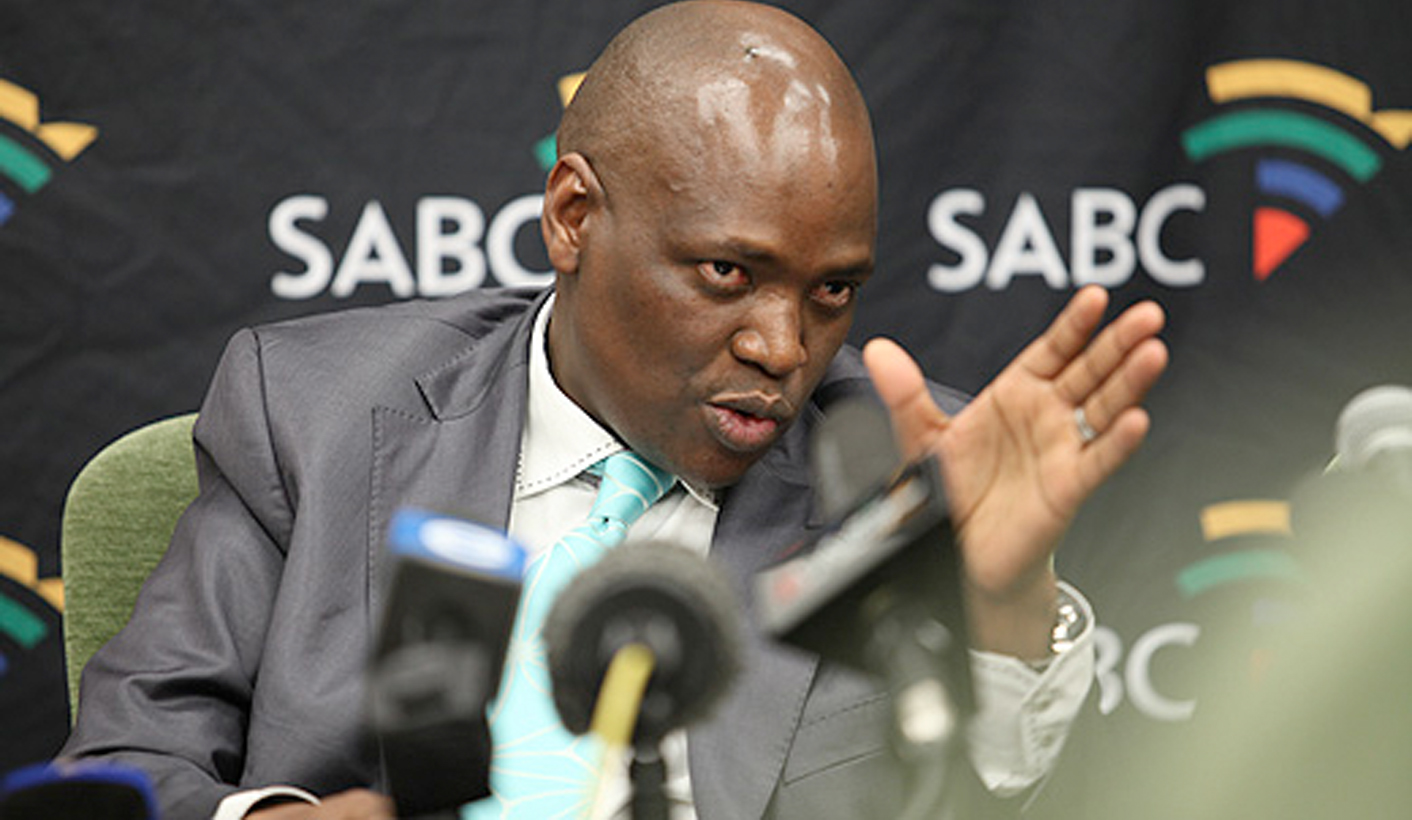The SABC faces a showdown in the Constitutional Court over the suspension of three journalists, a move that could bring into question the public broadcaster’s ability to report freely and fairly on the municipal elections in just over a month.
The three editorial staff members are economics editor Thandeka Gqubule, executive editor at Radio Sonder Grense Foeta Krige, and senior journalist Suna Venter.
Their suspension came after they opposed SABC chief operations officer Hlaudi Motsoeneng’s instruction not to report on an anti-censorship protest outside the SABC’s offices.
The upcoming municipal elections will be the most highly contested, with violence already flaring up and several people slain in clashes.
But if the playing fields are not levelled, including at the public broadcaster, many believe this could affect whether the elections will be seen as free and fair.
On Sunday, the governing party’s ally the SACP threw its weight behind the journalists, calling for their immediate reinstatement.
Sources said the SACP takes the matter so seriously that it intends to raise the issue with the ANC.
The Star has been reliably informed that a full-frontal legal challenge will be brought against the suspension of the three.
The trio are said to be preparing to fight all the way for what they see as a critical decision going into the local government elections.
The staff members didn’t want to comment when contacted on Sunday because the terms of their suspension prevented them from talking to the media, they said.
According to sources, the three feel what is happening at the SABC is deeply undemocratic and deprives journalists of their right to practise what they were trained to do.
“They believe the decision of the SABC goes against a constitutionally guaranteed public right to be informed and that it erodes journalists’ rights to be employed elsewhere if they leave the public broadcaster,” a source said.
“We are hoping that the industry will assist us to redeem ourselves and march with us to the Constitutional Court. We want to be heard directly by the court because this is critical before the elections.
“You cannot indulge in an anti-democratic practice to take away a hard-won right.”
The trio’s representative, Sheniece Linderboom, head of the law clinic at the Freedom of Expression Institute, said they were still formulating a plan of action for the three. She said they would explore all avenues, including representing the SABC employees internally and in court once discussions had been concluded.
“It’s still in the early stages, but this week we will be able to cement our plan of action,” she said.
Motsoeneng’s controversial decision to ban the public broadcaster from showing footage of violent protests in its news reporting has al-ready been taken to the Independent Communications Authority of SA.
Among footage the SABC turned a blind eye to was the violent reaction last week to the announcement of Thoko Didiza as the ANC’s compromise mayoral candidate inTshwane.
Residents of several Tshwane townships went on the rampage, torching two trucks and a bus, and trashing and looting several stores. Five people were killed in the violence, and journalists from various media houses were intimidated and robbed.
In 2006, a commission of inquiry report into blacklisting of commentators by then SABC managingdirector Snuki Zikalala slammed his arbitrary decision-making and iron-fist rule. Zikalala had ordered the blacklisting of political commentators from the airwaves.
The commissioners, Gilbert Marcus and Zwelakhe Sisulu, expressed concern on self-censorship within the SABC.
SACP spokesman Alex Mashilo said populist posture towards policy and labour relations at the SABC based on the creation of a personality cult in Motsoeneng constituted a deeply worrying trend.
“Since the banning decree, it has become very difficult to trust the SABC as a source of uncensored news. Each time news is broadcast, an unanswered question of what was concealed resurfaces. This is very bad for the image and credibility of the SABC,” said Mashilo.
SABC spokesman Kaizer Kganyago said the suspension of the three journalists was a matter between the employer and employees. “They (SACP) are talking about something they don’t know. They are basing their statement on one side of the story and we refuse to engage them on this,” he said.
[Source: The Star]






 WhatsApp us
WhatsApp us 

